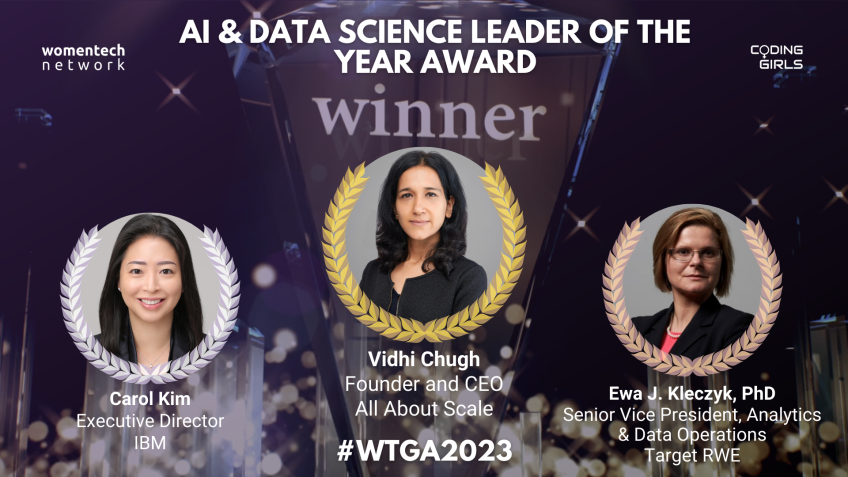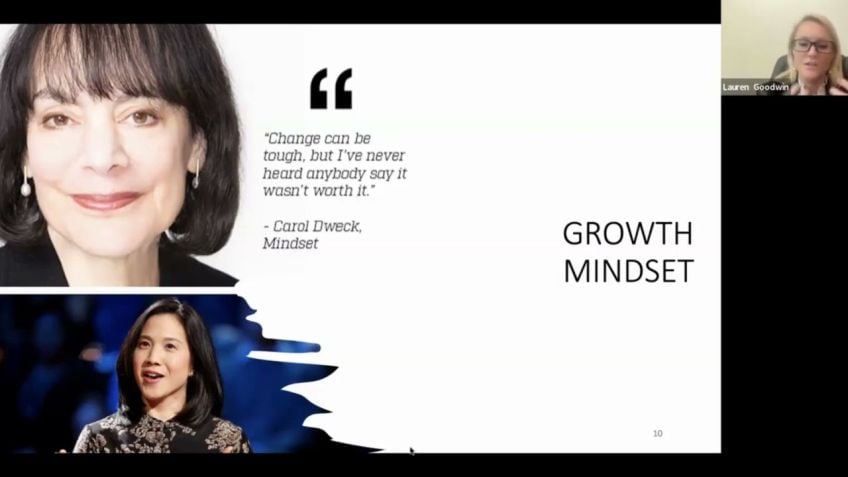De-Mystifying Machine Learning and Artificial Intelligence
Why Data Science Should be Your Next Career Move
Today, we'll demystify the hype around data science, artificial intelligence (AI), and machine learning (ML), and decipher various jargon. If you've ever wondered if transitioning into this field is right for you, this blog is your go-to resource.
Deciphering Data Science and Data Analytics
The industry is abuzz with terminologies like data analytics, natural language processing, and deep learning - but what do they mean? At its core, data science and data analytics revolve around extracting meaningful information from data to aid business decisions. Ever heard of business intelligence or data mining? All these fall under the broader umbrella of data science.
One key evolution is the integration of ML and AI into data science. AI is all about enabling machines to think and act like humans. A few common examples of AI in action include Amazon's Alexa, Apple's Siri, and Tesla's electric cars.
Making a Career Transition: What You Should Know
A lot of people face a dilemma when deciding to transition to AI and ML. The first thing you need to question is, "Are you genuinely interested in this field?" Interest and passion are paramount when switching careers. There are plenty of online courses on platforms like Udemy, Coursera, or you can choose to do a full-time course or an MBA in Business Analytics.
My Journey in Data Science
For context, I bring to you over seven years of experience in the analytics domain, machine learning, and AI. Currently, I'm a data science trainer in my organization and have trained almost 3,000 people globally. Over the years, I've gained hands-on experience with various facets of analytics like supervised learning, unsupervised learning, deep learning, and natural language processing.
The Increasing Importance of Data Science
There's no denying that we're generating a large volume of data every day. The amount has now surpassed quintillions of bytes of data per day. Here's where data science steps in to manage and make sense out of this massive data inflow.
Understanding Statistics in Relation to Data Science
Ever wondered what role statistics plays in all this? The backbone of all machine learning and AI is statistics. If you're keen on this field, start with basic statistics and math.
Understanding AI and Data Science
AI refers to technologies like self-driving cars and voice assistants (ironically I speak as my Alexa springs into action). Data Science, on the other hand, is a concoction of deep learning, machine learning, AI, analytical skills, and domain knowledge.
Myths About Data Science and The Reality
- Myth: You don't need programming to be a data scientist.
- Reality: You need a thorough understanding of programming languages like Python or R.
- Myth: You don't need a data science degree to transition into this field.
- Reality: While this is partly true, obtaining a certification ensures employers of your competency in the field.
- Myth: Data science and statistics are two different fields.
- Reality: They are closely linked.
The Hype and Reality in Data Science
Data Science is hailed as the "sexiest job of the 21st century" - but it's best to follow your passion rather than follow the hype. Today, it could be data science; tomorrow, it might be some other technology. Another perception is that data science is high-paying, and while this is true, the demand for data engineers is skyrocketing.
The Mathematics of Data Science
Jefferson once said, "there's no knowledge that's not power." When it comes to data science, one must know basic statistics, algebra, and calculus.
Applications of Data Science
Data science is ubiquitous - it's used in fraud detection, dynamic pricing, recommendation systems, inventory planning, route optimization, healthcare, and more.
Questions to Ask Before Making the Leap into Data Science
Before you make a career transition, discern between your desire to understand data science and making it your profession. These are two different paths, each requiring distinct levels of commitment.
Conclusion
At the heart of all things data science, NLP, and analytics lies an understanding of deep learning and neural networks. However, it's imperative to focus on what you genuinely enjoy doing rather than merely following trends.
If you're truly interested in making a transition, it's the perfect time to take the plunge into the fascinating world of data science. Don't hesitate to connect for more knowledge sharing.
Video Transcription
Hello everyone. So uh basically today we will talk about, you know, what is the hype around data science?Uh why everyone wants to, you know, move to this A I and ML field, uh what you can do and if at all, you should transition into this kind of a career or not. So, demystifying a quick uh you know, uh a few jargons in the industry like data analytics, uh natural language processing, deep learning, data science. Uh There are multiple uh jargons that people talk about these days, right? So uh whatever you do with data is data analytics, uh that's the simple definition of data science and data analytics any way in which uh you can derive meaningful information from the data presented to the stakeholders, be it uh business intelligence or be it. Uh data mining, everything falls into the category of data science. The only thing uh right now I think uh which has evolved is data science is also uh you know uh how you can use machine learning and A I into data science as well. So what is A I A I is nothing but how you can make the machines talk and think like humans. So that's all about uh artificial intelligence. A very common example is Alexa, we have Siri, uh we have uh Tesla, right?
All of them are good examples of how uh A I can be used uh in the data science. Now, a lot of people uh come to me and uh you know, ask me about how to make a career transition in this field. Uh The first question uh I asked them, are you really interested in this because it's not about getting into those fields because it looks great. I know it's uh it's said to be the sexiest job of the 21st century. That's, but it's not about that, right? I think uh whatever you do, you should be good at it and you should be interested in that. So that is something which is key when it comes to switching careers. So I always recommend people to think whether they're actually interested in data science or not. Uh The second thing which you can do uh while starting up is probably there are a lot of good courses on online uh say Udemy Coursera by Andrew NG. Or you can do a one year full time course. It could be an MS or, or it could be an MB A in Business Analytics. Data Science is now everywhere. You cannot escape data science. A basic uh knowledge of data science definitely required everywhere and for everyone. OK. Uh So that's uh pretty much about where you can start a brief introduction about me.
Uh Basically, I have seven years experience in the analytics domain machine learning and A I, I'm currently a trainer for data science um in, in my current organization and I have trained almost 3000 people globally in the past uh you know, two years. Uh I have uh experience with multiple cutting edge addictive analytics, supervised learning, unsupervised learning, deep learning, natural language processing. And I am also a published author of the book. Great. So all I'm telling you, you know, from this is from at least the seven years experience that I have in the industry today. It is probably data science tomorrow. It would be something else tomorrow. Probably we'll be talking about Blockchain or cloud. Uh right. So it could be anything technology changes, technology evolves. But why data science right now is important because we are generating huge amount of data data science have we have been doing from a very long time? We have been generating 2.5 quintillion bytes of data. OK. But now that has even crossed uh you know, the quintillion, probably we are generating that uh uh three or four qu quintillion of data every uh every day and every person is generating that much data, right? So the velocity volume and variety of data is uh increasing exponentially.
And that's why we need something so that you know, they can that they can deal with, you know, that large volume of data that is coming in, make sense out of it and probably, you know, drive uh business uh decisions. So you would have also heard about, you know, statistics uh and data science together. So what has statistics got to do with all of this? Uh basically the backbone of all machine learning and A I is statistics. So if you are really interested in this field, I would suggest uh you know, start with basic stats. What is hypothesis testing? Uh What is the value? Why, why at all, you know, do you want to um uh what is inferential statistics? What is descriptive statistics? Descriptive statistics basically becomes the exploratory data analysis in data science, right? And uh predictive analytics basically is nothing but uh predictive uh statistics. So all of this is related with statistics uh very, very closely. So if you are going to start somewhere, start with statistics and math, OK.
So as I already mentioned, artificial intelligence is nothing but uh what we use uh like self driving car, Siri Cortana, Alexa, uh where we use machines which are able to, you know, think and act like human beings. And data science is like, I don't know that one. So my Alexa just spoke. OK. So i it's smart enough. So data science uh basically is a combination of multiple things. It's a combination of deep learning, it's a combination of machine learning. It's a combination of artificial intelligence. And along with that, we should have domain knowledge of uh uh analysis, analytical skills, a little bit of knowledge on math and statistics to be a good um you know, professional in data science. So some of the myths and facts that some of the myths uh about data science, OK is that you probably do not need programming to be a data scientist. So one of them is, you know, definitely this is not true. You have to know uh in fact rigorous study and understanding of the subject is required for data science. And you need to be a good programmer. If you want to do anything with data science, because the data engineering field or data scientist or data analyst, everything is currently moved to Python or R OK, any language that you choose, but you have to be good at coding.
Uh The second thing is uh you know, uh you don't need a degree in data science because you want to transition into this field. I've heard, you know, uh a lot of people say this, well, this is partly true but companies today are looking for certified data scientists. OK? People who have thorough knowledge about the subject. So this kind of degree justify that you have spent enough time on the subject. So my opinion would be you can go with it if you're still a UB and data science and statistics are not two different fields. Definitely not uh everything that we do in data science is closely interrelated and tied up with statistics. So if you are a person who has already worked on statistics or you have studied statistics in your school, uh probably data science is a very good uh career for you. OK? And let's talk about, you know, the hype and the reality in data science. So data science is supposed to be uh the sexiest job of the 21st century, right? Some of which probably is true, some of which is a hype today. It's data science tomorrow, it would be some of the technology. So don't run behind technologies, do what you love. If you're, if you are interested in tech do that, if you're interested in being uh you know, uh in a management kind of a profile, do that if you want to be a singer sing.
So it's not that just because it's said to be the sexiest job of the 21st century, you have to do that. Uh It is definitely one of the most sought after job profiles. Uh But it depends on what is your qualification and what is the level of expertise that you have in that subject only then it is sought after, right? Uh Generally people uh think that uh data science is very high paying while it is true. But current trends suggest that data engineering is also a very good high paying job. You may think in the next uh 23 years, the requirement of data engineers would be a lot more than data scientists because data scientists cannot do anything unless you have data, right. So these people or data engineers are the one who basically create a data warehouse, get the data from different places and give it to the data science team or data scientist so that he can derive insights from it, right? So data engineering is a very very important aspect of the entire data science, ignoring it and just going to the machine learning or model building is probably not, right. OK. Um Then coming uh to you know what you should know in math. So when we talk about math related to uh data science, what that could be uh it could be basic uh statistics. Definitely uh you have to know about algebra and you should know about calculus, right?
Concepts like straight line solving linear nonlinear equations, eigenvectors, determinants, concepts of matrices, um a little bit about distributions, right, probability distributions uh measure of central tendency measures of dispersion measures of variability. These are some things are definitely required um when you are starting with and also working on the science coming to applications of data science. So where is it used? It is used everywhere. It is used in fraud detection, it is uh in in your banks, it is used in dynamic pricing in the railways and the aviation industry. It is used in recommending uh you items on Flipkart Amazon Netflix, all of that, it's used in your inventory planning. It is used in your best route. You know, if you have ordered something online um say food. Uh So how does the driver know right, which one should be delivered for? So best route optimization is used for pricing of products. It is used extensively in health care for research purposes. It is used uh you know um across domains, be it healthcare, be it F MC GCP G be it uh manufacturing domain, it is used everywhere. So that's the reason probably you should know the basics of data science, but probably just because it is used anywhere does not mean that you have to become a data scientist to you know, know about these things.
So know the differentiation between knowing something and transitioning your career into those kind of a field. Uh So that's pretty much uh from me. Uh I just wanted to cover uh these things that you know uh data science and N LP and analytics. All of them mean the same thing. Uh There are higher or advanced versions of data science like deep learning neural network which basically uh uh helps you to uh which helps the machine model the structure of the human brain, right? So it helps you to understand how um machines uh can actually emulate the behavior of humans. So that's pretty much about it. Uh Those are the jargons I think uh I, I would recommend or I would suggest please concentrate on what you like and don't go just by the buzzwords if you are looking for a change and you are really interested in this field and this is the best place you can be. So thank you uh everyone for joining uh all the best uh for everyone out there and you can definitely connect with me on linkedin. Um uh And see you. Any questions I'm still here. I think I can see the chat. Any questions for me. Any, any questions? Uh OK. What kind of uh Yeah, data scientist and data engineer is what attracts a, a potential employer. But at the same time, I think the current trend is that you should know deep learning and neural network because already people know about machine learning these days.
So an advanced topic like neural network and N LP is something which attracts uh employers across. OK. Any other uh questions uh with data science? OK. Uh Thank you guys. Uh I'll s I'll be signing off and please connect with me if you want to know more or if you have any questions. Thank you.





